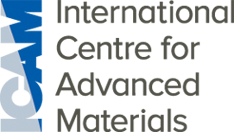For more information, please fill out the form on the contact page
Tribology is the science of interacting surfaces in relative motion, and involves the study and application of friction, lubrication and wear.
Tribology impacts on many aspects of modern technology and systems where materials sliding over one another can be affected by tribological interactions. Tribology research in modern transportation has focused on energy consumption and efficiency, leading to lubricants becoming more complex and sophisticated.
Tribology also plays a role in manufacturing. In metal-forming, friction increases tool wear resulting in increased power required to work a piece, thus increasing costs, tool replacements, loss of tolerance and greater forces to shape a piece. Lubricants minimise direct surface contact, reduce tool wear and power requirements. It is also necessary to know the effects of manufacturing as all manufacturing methods leave a unique system fingerprint influencing the tribocontact, such as lubricant film formation.
Within ICAM a number of academic groups are involved in tribology research and have access to a range of instruments to determine abrasiveness, adhesion, fatigue and friction.
Equipment available at each ICAM partner includes:
- University of Cambridge looks at tribology in mechanics, materials and design. Work includes: strength and failure of engineered surfaces, metal deformation, friction and lubrication, wear and lubrication maps, calculation of film thicknesses in elasto-hydrodynamic lubrication and its’ abrasive wear, mechanisms of lubrication, and adhesion of soft solids.
- University of Illinois at Urbana-Champaign’s Materials Tribology Laboratory looks at: soft materials interface interactions, biological and biomimetic material lubricity, and in-situ instrumentation design.
- Imperial College London’s Tribology Group looks at a broad range of research areas including: lubricant chemistry and rheology, hydrodynamics, elasto-hydrodynamic and boundary lubrication, contact mechanics, surface coatings, biotribology, wear and surface fatigue. A range of testing rigs includes: endurance, gear back to back, high frequency reciprocating, journal bearing tester, gear run-down and smearing, and micropitting. Other instruments include measuring wear volume using tribometers which can be conducted at load, low speed or high temperature.
- The University of Manchester looks at ceramics and inorganics. Research themes include duplex and hybrid processing methods, processes for thermal barrier coatings, plasma diffusion treatments, nanostructured and “glassy” metallic and ceramic films, and mechanical properties approaches to wear prevention. A range of available instruments include spectroscopy (impedance; Raman and fluorescence), indentors (MTS XP Nanoindenter), microscopes (including electron and transmission and a KSI 1 GHz Acoustic Microscope), micro-abrasion tester (Pheonix Tribology Micro-scale Abrasion Tester), scratch tester and universal tribometer (Bruker UMT Tribolab System).

